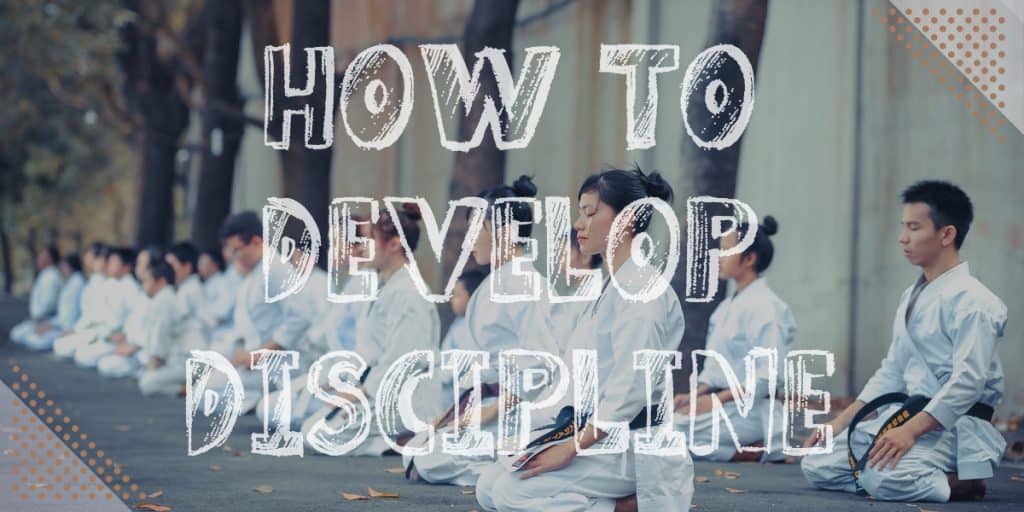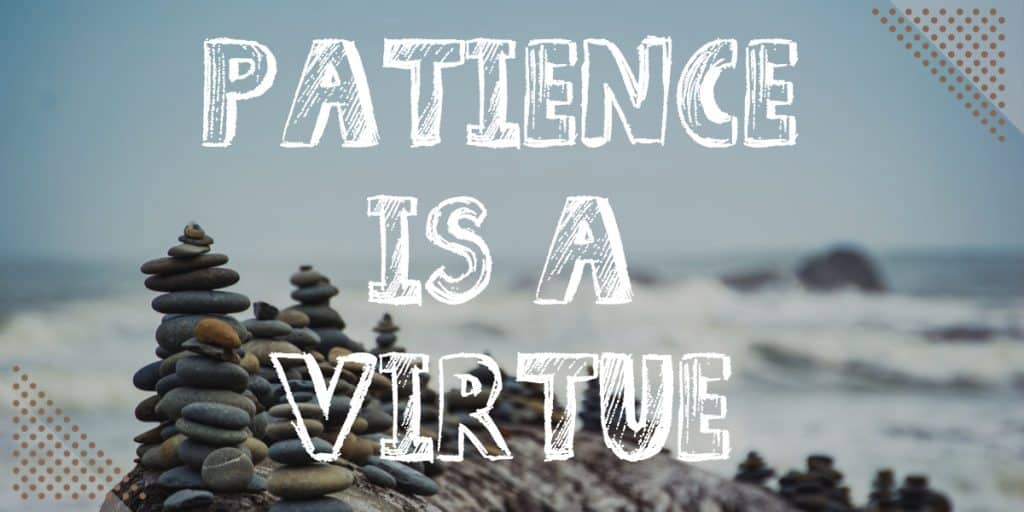
Why Is Discipline Important: Find The Key To Success
What are you most looking forward to this year? Is it a new house, getting out of debt, achieving something you’ve been planning for years? If so, then you need to work consistently to achieve your goals. To achieve any of these goals and dreams, discipline is the pillar of success. Discipline will help give you the tools needed to get through tough times and help find your purpose. Without discipline, we may never take action on our goals because they seem too far away or difficult. However, with discipline, all those fears melt away. This article will help you cultivate and master the art of discipline to help you with whatever you set your mind to.
Table of Contents
What is discipline?
Discipline is quite an important word in the world that we live in today. Having discipline means that we can stay the course and conquer obstacles that lie before us without letting fear get in the way. It is digging deep within ourselves to pursue the path to the person we want to become.

Why is discipline important?
Discipline is a virtue, and it will help you reach your goals in the long run. Discipline is vital for success because it helps people resist temptations to break rules. It takes a lot of effort and self-control to say no to an impulse, but we learn that keeping our word is much more important than instant gratification.
Everyone needs discipline to achieve their dreams and goals. Disciplined people can resist the temptation of instant gratification which can lead them down paths they regret later in life. The key ingredient for success is having some self-control over one’s impulses, thoughts, emotions, or behavior—and this requires discipline! Without it, people are easily swayed by outside forces which may not lead them towards their goals.
Achieving your goals in life starts with having discipline and being able to resist temptations and impulses that may hinder you from getting there. We all know what it feels like to be a slave to our desires, but when we are disciplined we earn the freedom to live the lives that we want!

How do you develop discipline?
First, let’s look at the opposite side of the coin: what it takes to be undisciplined. Undisciplined people let their emotions get in the way which can lead them down a path of destruction. Think about all of those times you felt an intense emotion (love, anger, greed) and did something you wish you hadn’t. If you had discipline, you could have resisted your impulsive behavior and made a rational decision.
Fortunately, there is hope! Everyone can learn to develop discipline through conscious effort. Here are the top five ways to do it:
1) Think of Discipline as a Reliable Partner or Mentor
When you think of discipline in this way, it will be easier to control yourself when the impulse strikes. If you fail, take note of what went wrong and how you can remedy it if the same situation happens again.
2) Be Aware of Your Temptations and Impulses
It’s better to figure out what you’re dealing with and learn how to work around it rather than ignoring it. There is no changing the fact that temptations and impulses will creep into your life, but only disciplined people can overcome their effects. You must accept and be aware of the impulses to work through them.
3) Remove Distractions
It’s impossible to practice self-discipline when a distraction is getting in your way. Remove all the distractions you can, and when you get distracted, be ready with a rehearsed response so you can easily get back on track.
4) Get Rid of Excuses
Excuses are for people who don’t have the discipline necessary to deal with their problems. There are no good excuses. Excuses just stand in the way of you and your goals. Realize your most common excuses and take action despite them to reach your goals.
5) Make a Plan
There’s no better way to improve your discipline than by making it part of a plan. This is the easiest way to develop discipline and stick to it. This means setting goals, making a plan of action to achieve them, and sticking with that plan—no matter what happens!
Make a list of your goals and the dates that you want to achieve them. Then break down each goal and write down the steps necessary to achieve each goal.
Ask yourself this one question
Every time you make a decision, ask yourself “Is this action in line with the person I want to become?” For example, if you want to become a healthy person, ask “Is this something a healthy person would do?” If the answer is no, then don’t take that action. This one question has allowed me to work towards and achieve my goals without fail.

Be virtuous
Being virtuous is an important part of life. It’s the best way not only to be a model for others but also to live a fulfilling life. Virtue is having good moral values and ethics that show who you want to become and how you want the world to be.
Being virtuous means living your life in a way that is ethical and moral. Its guiding principles are to live an honest, good, and honorable life. Virtuous people maintain a strong faith while still being prepared for adversity. Virtue is the foundation for success and happiness.
The most important thing in being virtuous is maintaining control over yourself when dealing with temptations or impulses. You need to have the discipline to do this, so remember to think of it as a reliable partner or mentor who will be there for you when you’re struggling.
Virtues to pursue
Here is a list of virtues that you can use to tell if your actions are in line with achieving your goals:
- Diligence/Perseverance- Are you striving towards your goal?
- Sincerity/Integrity – Do you keep your word?
- Compassion – Can you relate and do you care?
- Humility – Do you accept that there are things about yourself you need to improve on and take action to do so while not letting your pride get in the way of growth?
- Patience – Do you have the self-control to deal with difficult people/situations?
- Kindness – Are you performing good actions to help others, even if they aren’t going to benefit you?
Notice how none of these are things that happen instantly. How can a person be diligent (follow through with actions) or kind (help others without expecting or wanting anything in return) if they’re not willing to work through hours of distraction?
You can’t do these things unless you have discipline. It isn’t something that just happens overnight, but it’s the foundation for any lasting relationships or towards any goals whatsoever. Without self-control and persistence, there will be no achievement of any kind. Discipline is what allows you to be a good person, friend, parent, and partner.
Let’s break down each of these virtues to discover what it takes to achieve them.
Perseverance
If you want to have perseverance as a virtue, you need to develop patience. These two virtues go hand in hand. You will need to be able to deal with difficult people and situations to have the patience to work through the day. You also need to recognize that you might not get what you want right now but if you keep going, it will eventually happen. So it’s important that when we’re faced with a problem, we stay focused on solving the problem instead of giving up or allowing ourselves to be distracted by other things.
Integrity
One of the most important aspects of character is integrity. Integrity is being honest, genuine, and good in your interactions with others. You don’t achieve integrity by trying to convince people that you’re honest; it only comes by actually being honest. For example, if you act dishonestly and someone catches you, then the damage has already been done and no one will want anything to do with you – because your interactions will be tainted. But if someone acts honestly from the beginning, and maintains honesty, then they can build a trustworthy relationship.
This is why it’s important to do what you say you’re going to do instead of saying you’ll do something and letting yourself get distracted by things along the way. In this way, you can be honest with yourself and others.
Compassion
Compassion is the ability to identify with the feelings of others and work to create a positive change in their lives. One way you can have compassion is by being perceptive – to open up your mind, eyes, and ears so that you can notice other people’s needs and what could help them. Compassionate people are empathetic which means they try to understand what others are feeling. They do this by asking questions and listening closely.
A person could be compassionate in a variety of ways: giving money or time, providing emotional support, talking about a problem on someone’s behalf, taking action to solve a problem that someone else has identified, or just paying attention. It takes courage and empathy, but it makes for rewarding relationships when you put yourself in others’ shoes.
Humility
Humility is the quality of being humble. It’s an attractive personality trait that people respect and admire. To have humility, we need respect and a willingness to admit when we’re wrong or don’t have the answers for everything. Being humble means accepting your flaws and praising those around you instead of putting them down. It’s important to remember that you aren’t the center of the world and think about other people instead of just yourself.
Humility is an admirable quality, but it’s often difficult to achieve when we feel threatened or anxious. In these moments our instinct is to protect ourselves and fight anything that threatens what we think we need. Being humble means being able to admit that we don’t have all the answers and can learn things from others. Being humble means being vulnerable to connect with other people.

Patience
As I said before, it takes patience to have perseverance and integrity. You also need to be patient when you’re trying to build compassion or do anything that has a long-term goal. It can be frustrating to put in a lot of work and not see immediate results, so you need patience. Patience is about being able to enjoy the process of something happening instead of just focusing on if it’s going to happen or not.
Patience is about accepting that you cannot control everything, so you learn to let go. It’s about learning how to accept what’s out of your control. It’s about learning when to stay calm and when to navigate frustration.
Kindness
All topics mentioned above are interconnected. One way to be kind is by being patient or tolerant. It takes patience and tolerance to accept people for who they are and not try to change them into something different. For example, you might think that it’s easy to distract yourself from a problem by checking your phone, but it takes patience and tolerance (acceptance) to focus on what you’re doing instead of giving in to the impulse.
One way to be kind is by practicing forgiveness. Sometimes we need to forgive because someone genuinely apologizes and makes an effort to change. But other times, forgiving might mean letting go of anger or resentment towards someone.
Develop virtues to thrive
It takes patience and tolerance to accept people for who they are and not try to change them into something different. It also requires the ability to be kind by practicing forgiveness, letting go of anger or resentment towards someone else, as well as focusing on what you’re doing instead of giving in to an impulse like checking your phone when you have a problem. If there’s one takeaway from this article it’s that discipline is important because it helps us keep our word. In this way, we can maintain integrity with ourselves and others while building compassion through understanding other people’s needs.

Discipline is the key
As you can see, discipline is not always easy to maintain. But when we keep our word and follow through with what we say we’re going to do, it makes us feel good about ourselves in the long run. Instead of being frustrated by this practice that takes a lot of effort and self-control, think about how much more rewarding your life will be if you stay committed to developing these skills!




